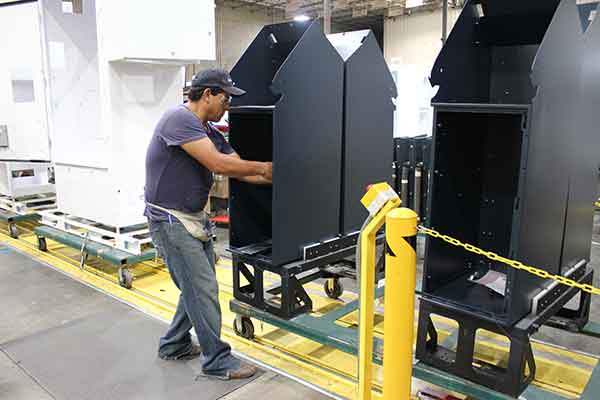Stud punches are critical tools in metal fabrication, ensuring precision and speed in operations. Their primary function is to create clean, precise holes in metal surfaces, which are essential for securing studs and other fasteners. This process is common in industries like construction, automotive, and manufacturing, where robust and efficient metalwork is needed.
The Role of Stud Punches in Metal Fabrication
In metal fabrication, the use of stud punches ensures that every hole made in the metal is accurate, preventing costly errors. The punch creates a hole of the right size and shape to accommodate various types of fasteners. When metal surfaces are drilled correctly, the strength and durability of the finished product are significantly enhanced. Without stud punches, fabricators would struggle to maintain the consistency and precision required in complex projects.
How Stud Punches Improve Efficiency
Efficiency is one of the biggest advantages of using stud punches in metal fabrication. Unlike traditional drilling methods, stud punches work quickly and with minimal effort, cutting down on the time spent on each piece. This efficiency leads to increased productivity, allowing manufacturers to complete projects faster. The speed of Stud punches also reduces labor costs, making them a more cost-effective solution in the long run.
Precision and Accuracy in Every Hole
Precision is crucial when working with metal, especially when dealing with heavy-duty machinery or structural components. Stud punches ensure that every hole is placed exactly where it needs to be, minimizing the need for adjustments or rework. This level of accuracy is impossible to achieve with manual methods or tools that lack the necessary precision. Whether you are securing small studs or large fasteners, stud punches provide the consistency required for a strong and reliable connection.

Choosing the Right Stud Punch for Your Needs
When selecting a stud punch, several factors should be considered. First, it’s important to choose the right size and type of punch for the material being worked on. Metal types vary in density and hardness, and a punch that works well on one type may not perform as effectively on another. Additionally, the punch’s design and material play a significant role in its performance. High-quality stud punches made of durable materials are more likely to withstand repeated use without losing their effectiveness.
How Stud Punches Enhance Workplace Safety
Using stud punches in metal fabrication isn’t just about improving efficiency; it’s also about ensuring safety. When drilling holes manually, the risk of mistakes or accidents increases, especially when working with thick, heavy metals. Stud punches reduce this risk by offering a controlled, precise method for creating holes. The design of modern stud punches helps to minimize the physical strain on workers, reducing fatigue and the likelihood of injuries. This leads to a safer working environment, which is essential for any metal fabrication operation.
Conclusion
Stud punches are indispensable tools in metal fabrication, providing essential benefits in terms of speed, accuracy, and efficiency. They offer a quick, precise solution for creating holes in metal, ensuring the strength and reliability of the final product. The versatility and cost-effectiveness of stud punches make them a top choice for fabricators across industries. By investing in high-quality stud punches, manufacturers can improve their operations, increase productivity, and maintain a high standard of work.




